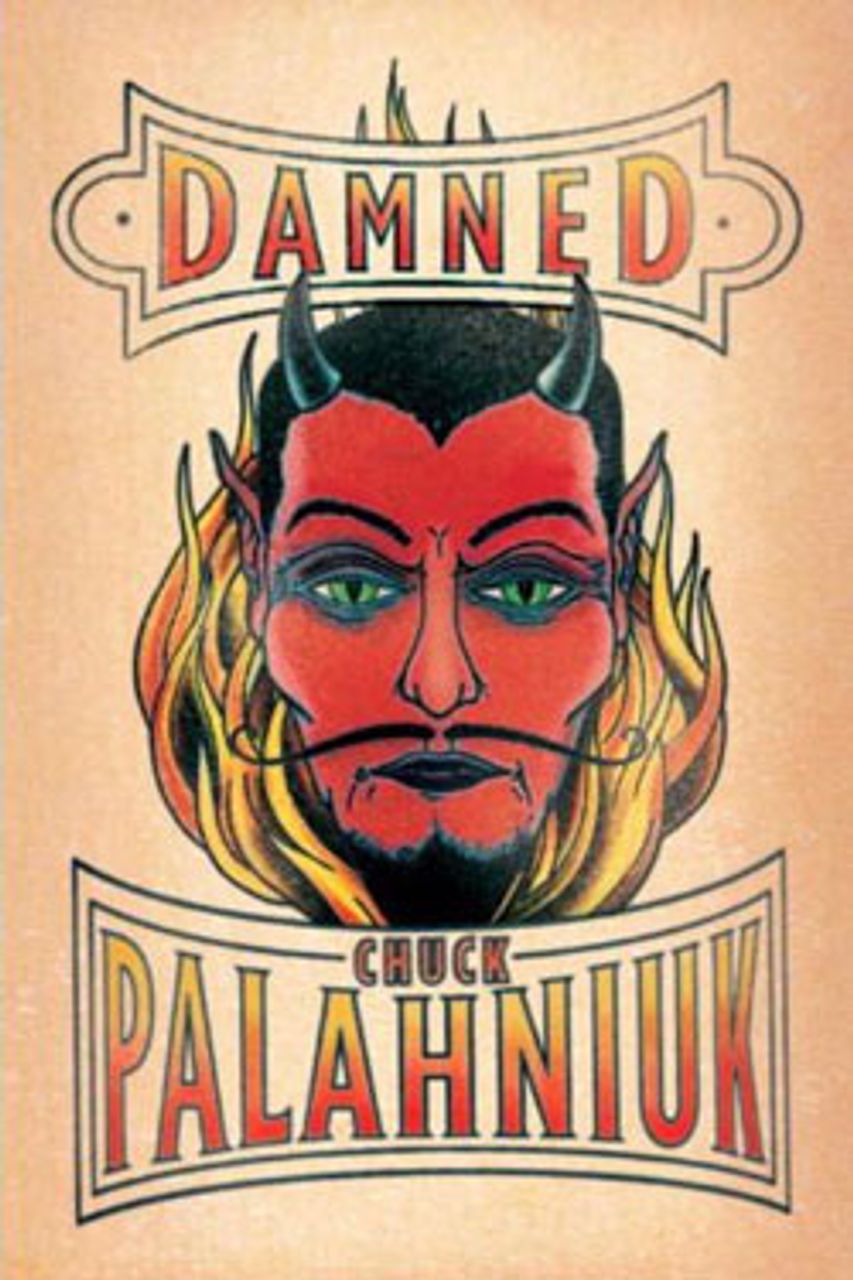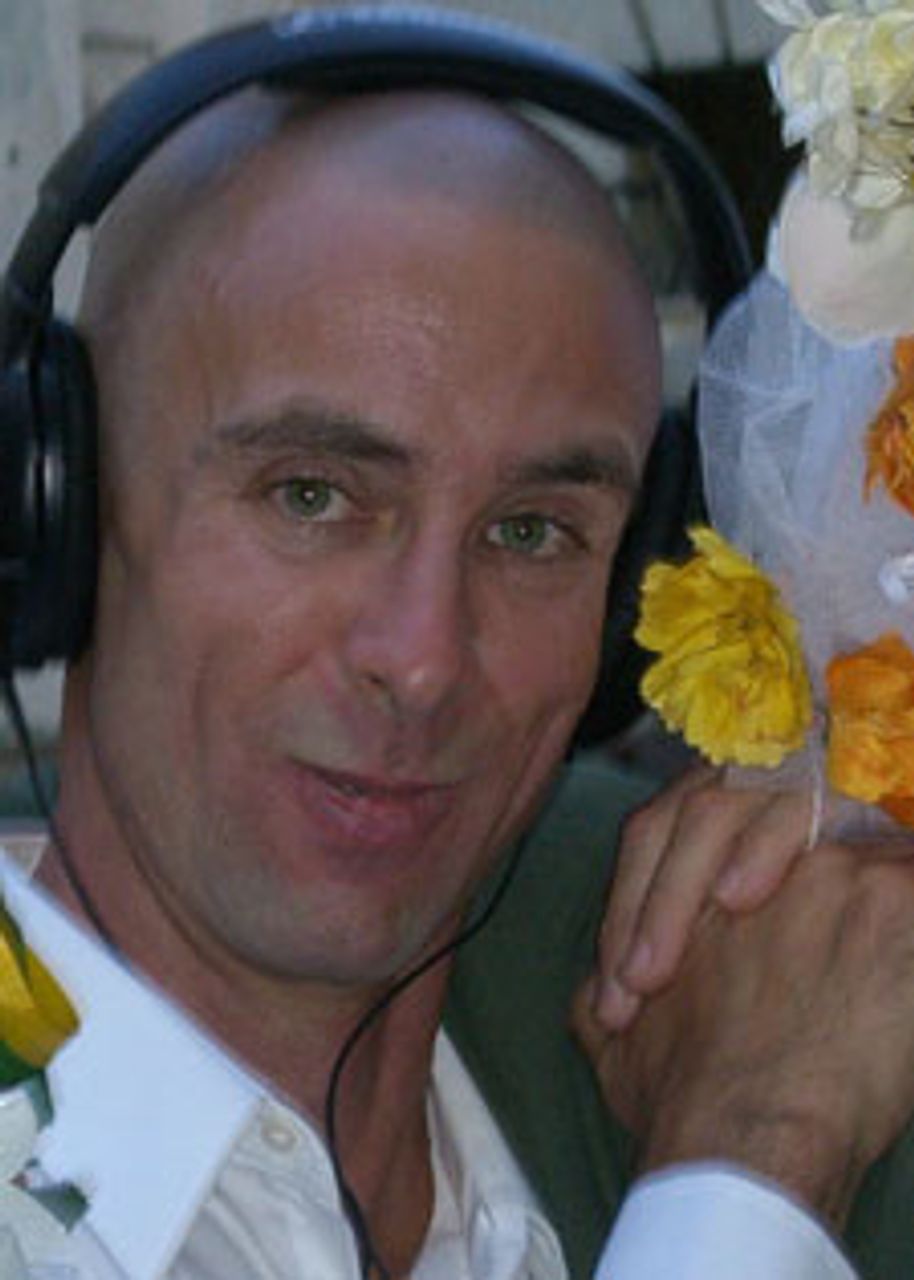
Damned, Chuck Palahniuk, Doubleday, Hardcover, $24.95
Writer Chuck Palahniuk has made a career out of trying to be the literary equivalent of a “shock jock.” First coming to prominence with his 1996 novel, Fight Club (turned into a film in 1999), Palahniuk has ever since made a conscious effort to gross out and disturb his readers. Though often described as a “cult” writer, Palahniuk’s books are put out by Random House, one of the world’s largest publishing entities, and so are hardly obscure.
Since his breakthrough with Fight Club, his books have been lauded as subversive, daring, outrageous and obscene. The novelist’s urge to become ever more offensive to hold his audience’s attention is something to consider. His latest novel, Damned, takes us on a journey characterized by contrived and banal disgust, replete with incessant pop-culture references, half-stolen ideas, and more gross-out “humor.”
Palahniuk has repeatedly described this novel as “The Breakfast Club in Hell” in interviews, and in creating his characters and plot, Palahniuk indeed borrows heavily from the 1985 John Hughes movie. The original Breakfast Club characters were already stereotypes; the Popular Girl, the Bad Boy, the Nerd, the Jock, the Misfit. Condemned to a Saturday detention for various petty crimes, they team up despite their differences and put one over on the principal.
In Palahniuk’s hands, the stereotypes are further reduced—the assumption being that the audience is already familiar with the characters, so any development is unimportant. Their outfits are described in detail, however, so the reader can be sure to match the novel’s personae with their film counterparts. The detention in Damned’s case is a trip through Hell itself. The Misfit is the protagonist, Madison (Maddy) Spencer.
 Chuck Palahniuk [Photo: Elena Torre]
Chuck Palahniuk [Photo: Elena Torre]There is no legitimate basis for media outlets such as NPR comparing this work to that of author Judy Blume. Since the 1970s Blume has written for young people on subjects ranging through divorce, God, and masturbation. Blume’s works have shocked people, but have done so with their boldness in stating things as they are, tackling issues that young people face with an otherwise hard to find honesty and sensitivity. Her books have been routinely banned for presenting reality in its messy glory.
In contrast, Damned is just messy. Palahniuk’s insistence on starting each chapter with a line from one of Ms. Blume’s works (Are You There God, It’s Me, Margaret) becomes tiresome very quickly.
Damned’s protagonist, Madison Spencer, is a 13-year-old girl, suddenly dead, who wakes up in a cell in Hell. A self-described fat girl and “hope-aholic,” Madison’s narrative is bogged down by incessant stereotypical teen girl snark. Little about this young person is sympathetic, which is a pity, because in more capable hands, we could have a rather interesting protagonist. Instead we are given a character whose constant inner chatter and repetitive phrases reveal almost nothing.
Descriptions of the antics of Madison’s incredibly wealthy parents—her mother the actress, her father the producer—could have been used to comment on the social ills with which the author seems passingly concerned. One sequence in particular that had tremendous potential involves Madison’s mother remotely watching one of their many houses via computer. They are thousands of miles away, yet with a few keystrokes Madison’s mother locks a maid in a room she has deemed not quite as clean as she’d like it to be. She’ll unlock the maid only when it sparkles enough.
There is a lot in these few paragraphs, which are rendered meticulously, yet they are simply dropped—just more words in a series of outrageous happenings. There is no exploration of the incredible imbalance of power involved here. Most maddening about such instances in this book is not just the lost opportunity to write with serious meaning, but the demonstration of Palahniuk’s ability to make such a scene believable. He can write, but too often chooses to scribble.
Palahniuk, as has been mentioned before, has a fondness for sensationalism, at times bragging about the growing tally of people who have fainted (70 at most recent count) at his reading of a particular short story. In Damned, he indulges himself heavily. The physical surroundings of hell are endlessly described with loathsome detail ranging from the merely icky (mountains of toenail clippings under which our heroine hides at one point), to the provocatively offensive (the oft-mentioned swamp of partial birth abortions). Clearly intended to make the reader squirm, page upon page of such blatant straining has a rather dulling effect on the senses.
A journey across the hellscape and a Wikipedia-fueled litany of demons encountered or sighted in the distance is interrupted by a scene Palahniuk could only have written as a bid to win Literary Review’s Bad Sex in Literature prize. I will not go into detail, but it involves an ogre and the decapitated head of one of Madison’s cohorts and results in Madison and her newfound friends getting a ride to the administrative offices of Hell where Madison takes a job at a call center making intrusive dinnertime calls. This last part would be funny had it not already been the punch line of many a 1990s-era stand-up comic.
Over the course of her time in Hell, Madison slowly realizes the true manner of her death. The reader will likely guess well before she does, as there is little in the way of mystery. She is forlorn when she figures out who her killer was, and almost loses hope. But in a predictable passage, she is cheered up by a supposedly unlikely compatriot who Reveals A Truth: You stay in hell until you forgive yourself. Buoyed by this news, Madison declares in fine break-the-fourth-wall tradition:
“The good news is that I’m not some fictional character in a printed book, like Jane Eyre or Oliver Twist; for me anything is now possible.”
She goes on to muse about how her whole life she has gone out of her way to be nice—an assertion not backed up by the previous 185 pages—and is urged by her friend to be rude to Hitler. After some drawn-out inner struggle, during which Madison recounts all the ills that have befallen her, she punches Hitler and steals his moustache.
Madison is then followed by the band of Nazis who’d been adoring Hitler—she makes them take off their armbands, as if this were the most objectionable part of the ideology involved—and she encounters and defeats a number of historical bad guys, Catherine de’ Medici among them. These passages read as if they were lifted directly from old encyclopedias; each character briefly sketched, the high (low) points of their biographies hastily cut and pasted in.
Palahniuk provides some twists in the last chapters—though none are genuinely surprising. It is revealed that Madison is in Hell due to a clerical error. Not unexpectedly she doesn’t want to leave. Given a chance to walk among the living on Halloween, she chooses to torture the former schoolmates whom she holds actually responsible for her death.
What is one to make of this? The constant barrage of demoralized language and description, the casually-used pop references and pseudo-philosophical one-liners add up to a sad book indeed. Palahniuk has had ample opportunity over the course of fourteen books and many articles to say what he has to say—he has made a career of writing about those on the fringes of society—the extremely downtrodden, the shysters, the marginalized and hopeless, and in his nonfiction he has occasionally been poignant. Yet he persists in going for the cheap shot, in pushing the common denominator ever lower and offering no way forward, choosing instead to wallow in the morass.
We live in a time of real horrors; the years during which Palahniuk has seen his star rise are concurrent with a number of horrific wars and a sharp shift to the right by the powers that be. With Damned, it is almost as if he is competing with Abu Ghraib, Haditha, and the other, near-daily, revelations of true bloody-mindedness to see who will be able to sink lowest, he or the world around him. If one is to believe Palahniuk’s version of the world, there is nothing worth saving. Even the “nice,” however unconvincingly drawn, are prone to just going along with the horror to get along. Everything is damned. Palahniuk’s is a deeply cynical outlook.
